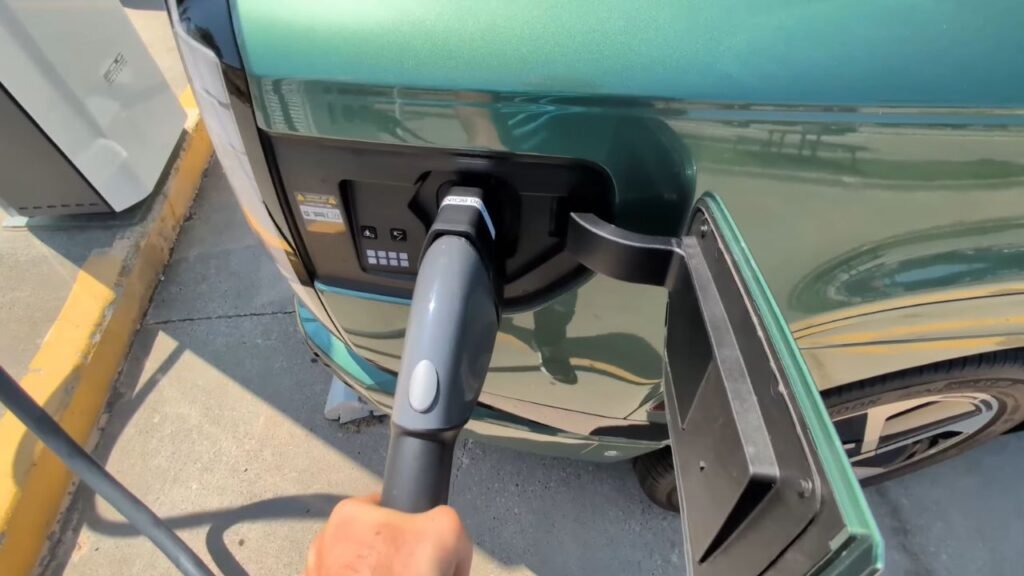We have tested 2026 Hyundai Ioniq 9 Calligraphy’s DC fast-charging and guess what? it has outperformed manufacturer projections.

Test Protocol & Conditions
Test were conducted in the near-ideal thermal conditions (80°F ambient) which was an independent evaluator targeted Hyundai’s advertised 24-minute 10-80% charge capability.
We got 2026 Hyundai Ioniq 9 Calligraphy at an Electrify America station with its 110.3-kWh battery with 9% state of charge (SoC) and integrated systems confirming optimal temperature readiness. “The vehicle’s diagnostics indicated perfect conditions for maximum charge acceptance,” the tester observed.
Performance Through Adversity
Initially, charging was interrupted due to a nearby F-150 Lightning activated a power-shared station. then we moved it to another unrestricted charger at 15% SoC, the Ioniq 9 demonstrated its true capability:
- Peak Output: 244 kW achieved at 61% SoC (charger-reported)
- Sustained Power: Maintained >220 kW until 67% SoC
- Managed Taper: Gradual reduction to 203 kW (69%), 183 kW (72%), and 164 kW (74%), stabilizing at 152 kW until 80% SoC
- 15-80% Duration: 22.5 minutes including initialization
Our test analysis revealed that a 1.5 kW discrepancy between charger output and vehicle intake at 43% SoC (234.5 kW displayed internally versus 233 kW supplied).
Exceeding Manufacturer Claims
Our test validated Hyundai’s 24-minute claim under real-world conditions. it showed 15-80% segment completing in 22.5 minutes.this test indicate a flawless 10-80% charge would likely conclude within 23-24 minutes.
“This charging profile transforms long-distance travel,” the tester noted. “Thirty-minute stops can restore approximately 400 km of practical range.” what else you want in any EV?
Technical Significance
The 2026 Hyundai Ioniq 9’s fast charging performance establishes new expectations for the segment. few highlights are:
- Maintained ultra-high charging (>220 kW) through most of the charging window
- Delivered 125 kW at 81% SoC – exceeding many competitors’ peak capabilities
- Demonstrated exceptional thermal stability in warm conditions without throttling
